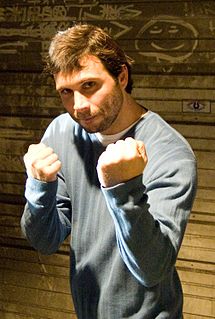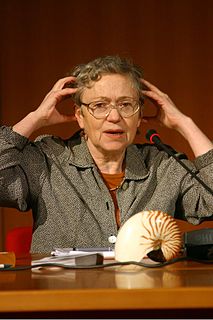A Quote by Laura Schlessinger
Children are our second chance to have a great parent-child relationship.
Quote Topics
Related Quotes
A conscious parent is not one who seeks to fix her child or seek to produce or create the 'perfect' child. This is not about perfection. The conscious parent understands that is journey has been undertaken, this child has been called forth to 'raise the parent' itself. To show the parent where the parent has yet to grow. This is why we call our children into our lives.
The traditional paradigm of parenting has been very hierarchical, the parent knows best and very top down. Conscious parenting topples [this paradigm] on its head and creates this mutuality, this circularity where both parent and child serve each other and where in fact, perhaps, the child could be even more of a guru for the parent .... teaching the parent how the parent needs to grow, teaching the parent how to enter the present moment like only children know how to do.
Training moments occur when both parents and children do their jobs. The parent's job is to make the rule. The child's job is to break the rule. The parent then corrects and disciplines. The child breaks the rule again, and the parent manages the consequences and empathy that then turn the rule into reality and internal structure for the child.
When any relationship is characterized by difference, particularly a disparity in power, there remains a tendency to model it on the parent-child-relationship. Even protectiveness and benevolence toward the poor, toward minorities, and especially toward women have involved equating them with children.
Because adoption meets the needs of children so successfully, and because there have long been waiting lists of couples hoping to adopt babies and children, it would seem that the solution for abused or neglected kids was obvious. But not to the do-gooders. To remove a child from an abusive parent, sever the parent's parental rights, and permit the child to be adopted by a couple who would give the child a loving home began to seem too 'judgmental.'
The parent who loves his child dearly but asks for nothing in return might qualify as a saint, but he will not qualify as a parent. For a child who can claim love without meeting any of the obligations of love will be a self-centered child and many such children have grown up in our time to become petulant lovers and sullen marriage partners because the promise of unconditional love has not been fulfilled.
We grow because the clamorous, permanent presence of our children forces us to put their needs before ours. We grow because our love for our children urges us to change as nothing else in our lives has the power to do. We grow (if we're willing to grow, that is: not every parent is willing) because being a parent helps us stop being a child.
If every parent understood the huge educational benefits and intense happiness brought about by reading aloud to their children, and if every parent- and every adult caring for a child-read aloud a minimum of three stories a day to the children in our lives, we could probably wipe out illiteracy within one generation.





































